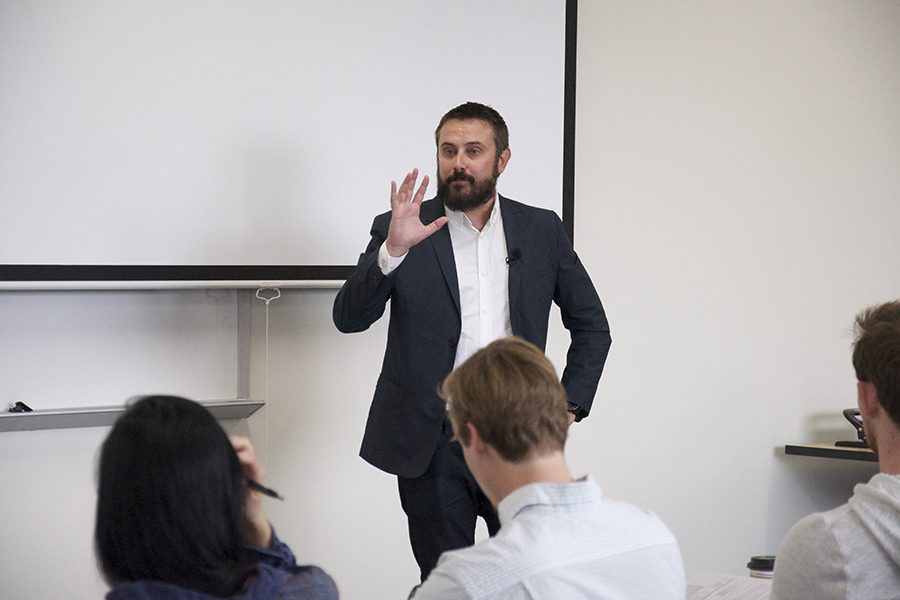Giving a voice to the voiceless
Scahill in Madison to promote his most recent book
Author and investigative journalist Jeremy Scahill speaks at the Truax Campus on September 19
October 4, 2016
Author and investigative journalist Jeremy Scahill said his greatest committment is to “give voice to the voiceless.”
A former Madison College student, Scahill is a war correspondent and author of “Dirty Wars: The World Is a Battlefield” and Blackwater: The Rise of the World’s Most Powerful Mercenary Army.” He is on tour for his latest book, “The Assassination Complex,” and spoke on Sept. 19 at Madison College.
Scahill was enrolled at the college during the early 1990s. He credits his instructor, Janet Stevens, who was present at the talk, with inspiring him and his career.
Stevens, a current political science instructor, described Scahill as an enthusiastic student. At a past event at the Barrymore Theatre, Scahill introduced Stevens to Amy Goodman, of Democracy Now! Stevens said she was surprised that Goodman knew her as the only teacher who told Scahill, “Don’t think about it, just do it!”
Stevens is not surprised of her former student’s success. She describes Scahill as having three strong traits: “first, he was a good writer, second he was interested, and third he was willing to take risks.”
Stevens also said that Scahill had a highly supportive family who was and is very active in social justice. “It’s easier if you come out of a family that is active,” she said.
Scahill’s talk covered a myriad of topics. One of the most striking was the untenable situation in Iraq, when he traveled there and needed medical care. U.S. sanction prohibited necessary items that hospitals went without: bleach, analgesics, and even No. 2 pencils.
He questions the actions of powerful institutions as they move toward fulfilling their own goals, the current political atmosphere as we anticipate a new president-elect, private companies who pilfered hundreds of thousands of dollars during at-home disasters, and much more.
The Clarion videotaped a one-to-one interview with Scahill as well as his entire talk, which can be found on the newspaper’s website.
Many journalism students were in the audience, as well as, instructors, and college employees. Bill Dunham, an employee, appreciated Scahill encouraging students to push through with what they want to learn. Dunham who watches Democracy Now! every day and is familiar with the documentary Dirty Wars, says Scahill is also good when he’s being interviewed. “He knows what goes on in journalism, so he’ll stand up to interviewers and tell his truth. He’s not afraid to do that.”
Scahill’s own education was unconventional. He said working at the station WBAI as a volunteer for Amy Goodman was his university. And, he said, once he got over the stigma of needing a paper to tell you what you are, he began to view every opportunity, every interaction, with others as his classroom.
Lastly, before taking questions from the audience, Scahill provided three rules for the (or future) investigative journalist. These are:
Hold those in power accountable. Give voice to the voiceless. And, get your facts straight































